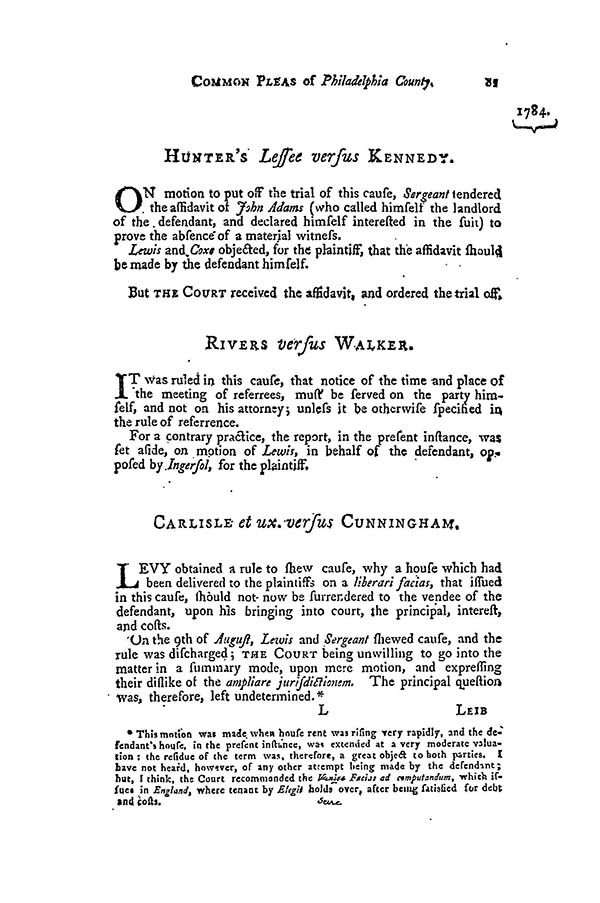Hunter's Lessee v. Kennedy, 1. Dall. 81 (C.P. Phila. Cty. 1784), Rivers v. Walker, 1. Dall. 81 (C.P. Phila. Cty. 1784) and Carlisle v. Cunningham, 1. Dall. 81 (C.P. Phila. Cty. 1784)
Common Pleas, Philadelphia County.
June Term, 1784.
Hunter's Lessee versus Kennedy.
Lewis and Coxe objected, for the plaintiff, that the affidavit should be made by the defendant himself.
But the Court received the affidavit, and ordered the trial off.
Hunter's Lessee v. Kennedy, 1 U.S. 81, 1. Dall. 81 (C.P. Phila. Cty. 1784)
Rivers versus Walker.
It was ruled in this cause, that notice of the time and place of the meeting of referrees, must be served on the party himself, and not on his attorney; unless it be otherwise specified in the rule of referrence.
For a contrary practice, the report, in the present instance, was set aside, on motion of Lewis, in behalf of the defendant, opposed by Ingersol, for the plaintiff.
Rivers v. Walker, 1 U.S. 81, 1. Dall. 81 (C.P. Phila. Cty. 1784)
Carlisle et ux. versus Cunningham.
Levy obtained a rule to shew cause, why a house which had been delivered to the plaintiffs on a liberari facias, that issued in this cause, should not now be surrendered to the vendee of the defendant, upon his bringing into court, the principal, interest, and costs.
On the 9th of August, Lewis and Sergeant showed cause, and the rule was discharged; the Court being unwilling to go into the matter in a summary mode, upon mere motion, and expressing their dislike of the ampliare jurisdictionem. The principal question was, therefore, left undetermined.*
Carlisle v. Cunningham, 1 U.S. 81, 1. Dall. 81 (C.P. Phila. Cty. 1784)

Last modified: December 11, 2014